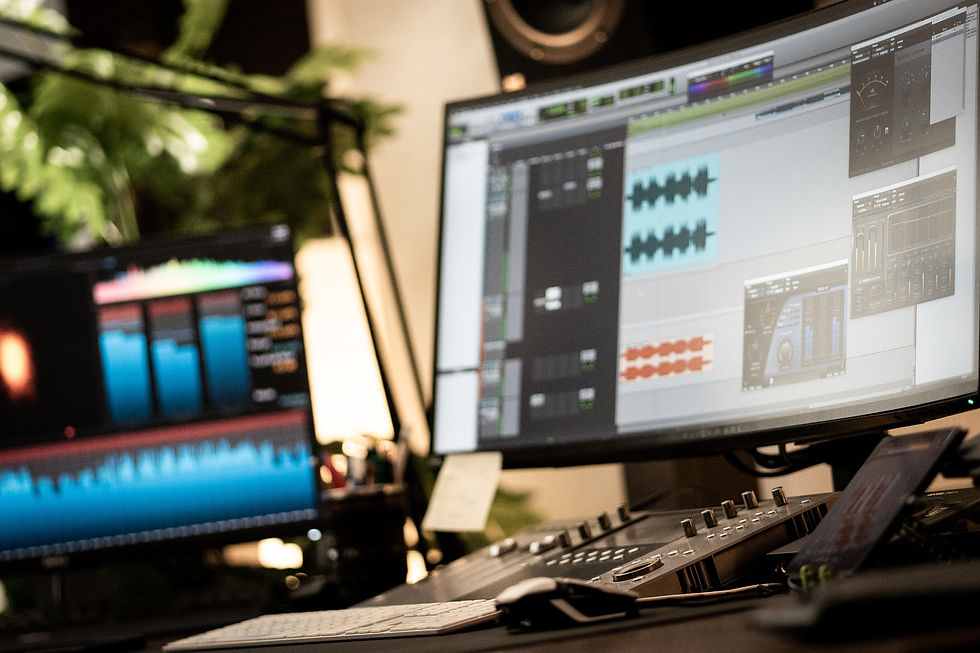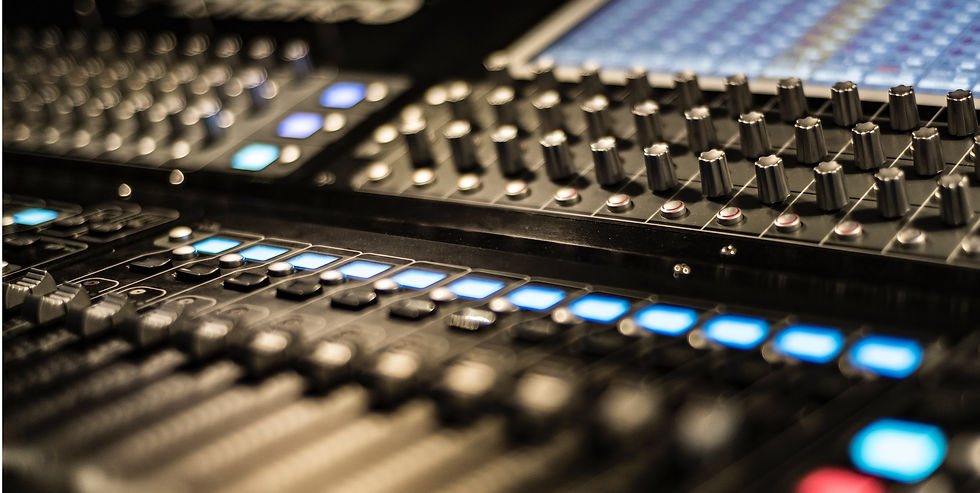Why You Really Need Pro Mastering
- Mar 28, 2023
- 4 min read
Updated: Jul 21, 2023

After all the rehearsals and recording sessions and those painful final song choices, you come to a critical point in the life of your record. It’s time for mastering. Your mix engineer may offer to help you out and do it. Maybe you have a less skilled (but even more affordable) cousin who could do it. You think the record sounds great, and you’re ready to just put it out already. You wonder, Is pro mastering worth it?
What is mastering?
Even to an untrained ear, mastering leaves an unmistakable mark. The problem is the pros make it sound so easy (and so good) that lots of listeners, even musicians, underestimate the expertise and pure artistry behind it.
Technically, mastering is the final stage of post-production. You turn your final mix into a master (for CD, Vinyl, DVD, Download or whatever format), and then you can finally distribute your music to the adoring masses (hey, dream big). It definitely involves much more than making things “louder.” It’s your golden opportunity to take your recording and polish it, clarify it, and make it definite and defining.
I say mastering is not a process, it’s a perspective. Mixing and mastering are two different steps—for good reasons.
When I’m in that chair, every single, obsessively-detailed adjustment I make is based on what I’m hearing and how it relates to thousands of other records I’ve mastered before. How I listen is just as important. Because a pro mastering engineer imagines what your record could sound like and has the skills and experience to take it there.
Why does pro mastering matter?
Let me put it this way: no one has ever produced a hit without it. Every major music release has been professionally mastered. Even widely-known Indie projects are carefully mastered. By skipping mastering—or doing it on the cheap—you limit your own potential. Those who hear your recording will think of you as semi-pro or even amateur.
It sounds harsh, but when you skip mastering, you give up on your recording. And so will the industry. I’ve watched radio promoters and labels pass on great songs for those with more polished production. And I’ve seen them do 180s when that same music got mastered properly.
You also underestimate your audience. If you’re like most musicians today, you’re independent. You’re not out to impress execs. Instead, you’re selling right to the public. But guess what? They’re not fooled, either.
Imagine a carpenter who came in and built amazing bookshelves but didn’t give them a fine finish. Or a brilliant novelist who skipped the final proofread. Could you still see that they had real talent? Absolutely. Would the work be (or even seem) finished? No. Sadly, after all that effort…no.
Can’t anyone do it?
We’re back to your well-intentioned mix engineer, who knows you’re on a budget and has a good grasp of the basics. And your cousin, who’s a talented kid, after all. Maybe you’re even thinking of handling it yourself. There are dozens of programs and plugins out there, right?
First, let me draw an important distinction. Your mix engineer has incredible skill sets for handling individual tracks. (Drums alone can be handled 1,000 ways.) By the time they’re approaching mastering, they’ve heard every line of your recording ad nauseam. It’s not easy, with those ears, to stop hearing your music as a collection of parts.
Your mastering engineer has (for the most part) only one way of listening to your record: as a whole, the sum that is greater than all parts. Typically, they’re hearing it in the same room where they’ve heard record after record, year after year, as they cultivated their (say it with me) perspective: the sonic knowledge base that qualifies them to usher your recording through its crystallizing moment.
Maybe your listener won’t know why your recording sounds different. But they’ll know their connection to it is real. They’ll know it doesn’t sound like a demo. They’ll know it sounds balanced, emotional, even profound. They won’t hear your recording. They’ll just hear your music.
OK, let’s say I know I want it. Is it really right for me?
Maybe you’re a boutique label, or your band works with one. Your sound is raw, and you think that might be OK. Your studio recordings aren’t so great to begin with. You’re thinking, When I’m making real money, I’ll try pro mastering. For now, I’ll find some way to handle this myself.
That’s true. You can adjust levels, set recommended EQ settings, and even compare your final product to a personal favorite. But that isn’t mastering. It’s leveling and EQ-ing without the all-important perspective of the mastering engineer. Believe me: even a less-than-perfect recording can be elevated to a whole new level in the right hands.
It starts with musicians killing it in the studio. Then the mix engineer serves up a beautifully preserved record of that day. And then the mastering engineer lends that knowledgeable, final, fresh ear—ensuring every inflection, emotion and color of your music bursts from black and white into full-spectrum color.
There will never be a plugin for that.




Comments